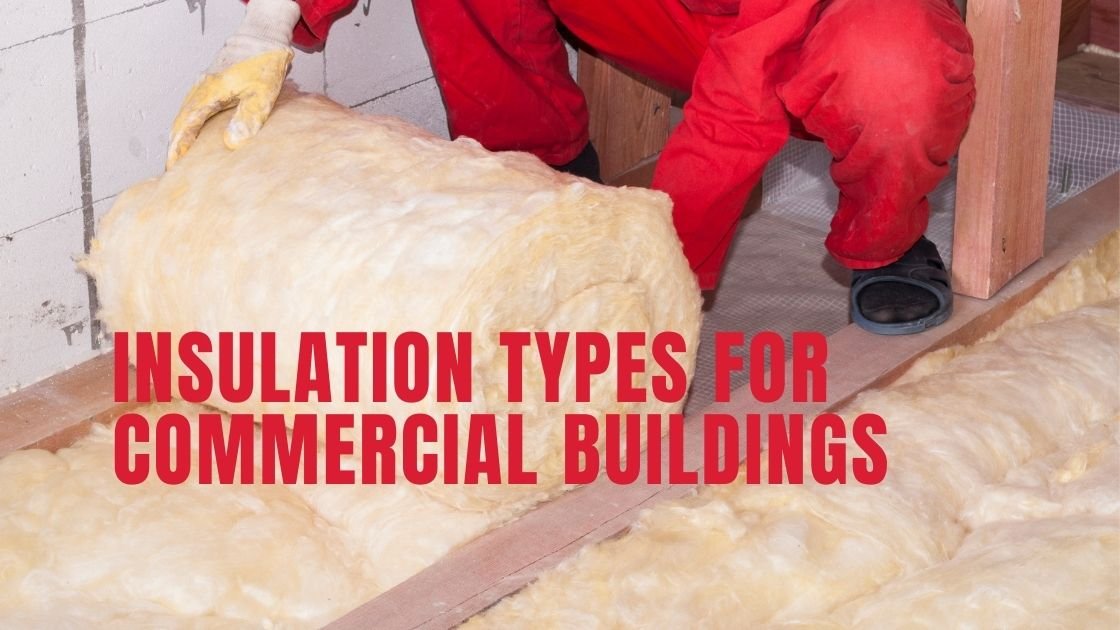What Type of Insulation is Used in Commercial Buildings?
Insulation is one of the most critical elements of commercial buildings. In order to keep the temperature constant inside the building, it is necessary to properly insulate the building. There are four types of insulation that can be used in commercial buildings. These types include R-values, spray foam insulation, cellulose fiberboard, and mineral wool.
What Type of Insulation is Used in Commercial Buildings?
-
R-Value
The R-value is a way of measuring insulation effectiveness. It is based on the R-factor, which measures the resistance to the heat of different types of insulating materials. The higher the R-value, the better the insulating qualities are. This makes commercial buildings very expensive to operate, as more money needs to be spent on heating the commercial buildings.
-
Spray Foam Insulation
Spray foam insulation is probably one of the most popular insulations for commercial buildings. It can be used on any type of surface, although some surfaces might need to be treated with a certain type of coating before it can be installed. The spray foam insulation is highly conductive, meaning it will release heat quickly and is very effective at keeping the temperature constant.
-
Celluose Fiber Boards
Cellulose fiber boards are also very popular in commercial buildings because of their cost-effectiveness. They are made from expanded polystyrene (also known as a PC), which is a by-product of the paper industry. Although cellulose fiberboards are inexpensive, they take up a lot of space. Therefore, they are not appropriate for small office buildings or stores, but they can be used in larger office buildings. One of the problems with cellulose fiberboard is that it is not as effective at trapping heat, so it might not be the best choice to use in a high-traffic area such as a store or an office building.
Foam insulation is another popular type of insulation. This type is often referred to as fireproofing because it is fireproof. Fireproofing means the material carries the inherent properties that make it more resistant to fire damage than other types of insulation. There are two primary types: spray foam and cellulose fiberboard. The spray foam is made from a special formulation that contains water vapor, and this is why it is commonly referred to as fireproofing.
A cellulose board is much like a spray foam insulation, except it does not carry the water vapor formulation. It is made from synthetic fibers, and therefore, will not trap moisture. It is sometimes called insulation that absorbs heat, but because it has natural thermal conductivity, it does not trap heat well. It is typically seen in fireproofing and shelving applications. The cellulose board is not very durable, so it must be replaced on a regular basis.
-
Identifying the right type for commercial buildings
When you learn what type of insulation is used in commercial buildings, it will help you identify the right type of insulation for your application. You need to choose a product that can effectively reduce heat transfer, but at the same time, won’t absorb moisture well. In order to get an accurate estimate of how well any particular product will work, it is important to talk to a qualified professional who will be able to take the measurement of your building and provide you with an estimate. It is also a good idea to have an expert give you a free estimate if you are considering using a certain type of insulation in your commercial space.
-
How to determine which type is suitable for your building?
There are many ways to determine what type of insulation is used in commercial buildings. Talk to your local builder’s association or engineering department to learn about the different types of insulation that are available. You also need to research the pros and cons of different products so that you make the best decision. If you do not know much about insulation, consulting an insulation contractor who specializes in this field could be beneficial. He or she may even be able to help you install the product for you.

















